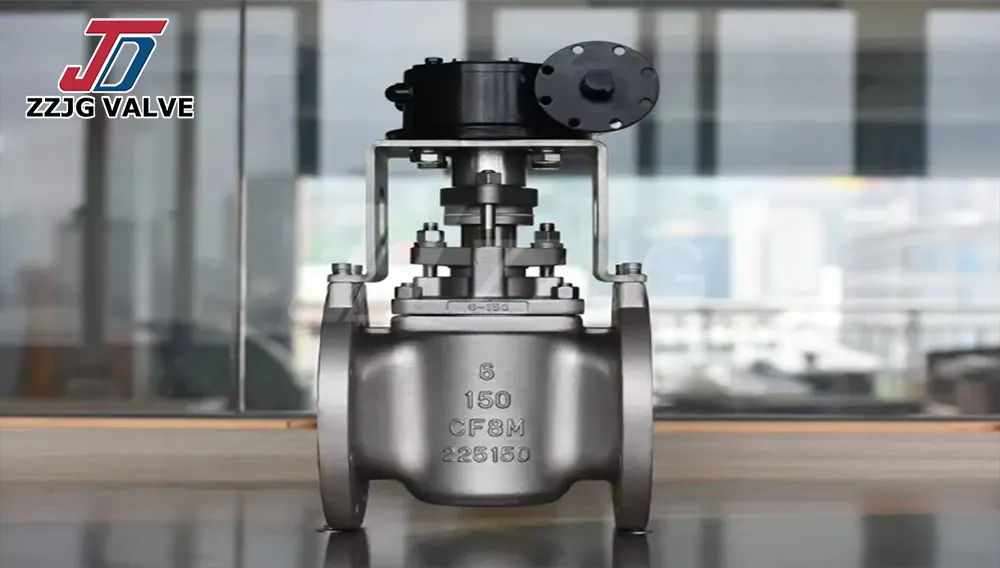Why choose plug valve instead of ball valve?
15 Sep, 2025
Plug valves and ball valves are similar valve types. Which one is more suitable? Below is a detailed introduction to the advantages of ZZJG plug valves:

Plug valves are a new type of fluid control valve that offers several advantages over traditional ball valves.
1. Better flow path design: Plug valves utilize an S-shaped or Y-shaped flow path design, which effectively reduces flow resistance in the valve path, thereby improving the valve's flow capacity and flow control accuracy.
2. Better sealing: Plug valves incorporate a sealing device between the stem and the valve element. Rotating the valve to open and close it reduces leakage caused by extended use.
3. Stronger locking force: Plug valves utilize a coil-locked valve core, ensuring a more secure lock and more reliable closing.
Plug valves can replace ball valves and offer superior performance.
Traditional ball valves are common fluid control valves and are widely used in many industries. However, plug valves can also replace ball valves in some specialized applications:
1. High-temperature and high-pressure applications: Traditional ball valves are prone to aging and deformation under high-temperature and high-pressure conditions, affecting their sealing performance and control accuracy. Plug valves, however, utilize advanced heat-resistant materials and structural designs, enabling more reliable operation in these applications.
2. Low-temperature applications: In low-temperature applications, ball valve seals are susceptible to hardening and cracking due to the effects of low temperatures, making valve closing difficult. Plug valves, however, utilize low-temperature materials and special temperature control devices, enabling them to operate normally in these conditions.
3. Applications requiring high valve reliability: In critical equipment or industries, such as nuclear power plants and petrochemical projects, valve reliability is extremely important. Traditional ball valves, due to their simple structure, are prone to leakage or failure. Plug valves, with their more complex structure and more stringent manufacturing standards, offer greater advantages in applications requiring high reliability.
In short, plug valves offer improved flow control accuracy, a longer service life, and higher reliability, making them suitable replacements for some traditional ball valves. They have broad application prospects in high- and low-temperature, high-pressure, and high-reliability applications.

Plug valves are a new type of fluid control valve that offers several advantages over traditional ball valves.
1. Better flow path design: Plug valves utilize an S-shaped or Y-shaped flow path design, which effectively reduces flow resistance in the valve path, thereby improving the valve's flow capacity and flow control accuracy.
2. Better sealing: Plug valves incorporate a sealing device between the stem and the valve element. Rotating the valve to open and close it reduces leakage caused by extended use.
3. Stronger locking force: Plug valves utilize a coil-locked valve core, ensuring a more secure lock and more reliable closing.
Plug valves can replace ball valves and offer superior performance.
Traditional ball valves are common fluid control valves and are widely used in many industries. However, plug valves can also replace ball valves in some specialized applications:
1. High-temperature and high-pressure applications: Traditional ball valves are prone to aging and deformation under high-temperature and high-pressure conditions, affecting their sealing performance and control accuracy. Plug valves, however, utilize advanced heat-resistant materials and structural designs, enabling more reliable operation in these applications.
2. Low-temperature applications: In low-temperature applications, ball valve seals are susceptible to hardening and cracking due to the effects of low temperatures, making valve closing difficult. Plug valves, however, utilize low-temperature materials and special temperature control devices, enabling them to operate normally in these conditions.
3. Applications requiring high valve reliability: In critical equipment or industries, such as nuclear power plants and petrochemical projects, valve reliability is extremely important. Traditional ball valves, due to their simple structure, are prone to leakage or failure. Plug valves, with their more complex structure and more stringent manufacturing standards, offer greater advantages in applications requiring high reliability.
In short, plug valves offer improved flow control accuracy, a longer service life, and higher reliability, making them suitable replacements for some traditional ball valves. They have broad application prospects in high- and low-temperature, high-pressure, and high-reliability applications.
Previous: High-Pressure Plug Valves for Oil Refineries in Saudi Arabia
Next: Common Plug Valve Problems & Solutions for Middle East Clients